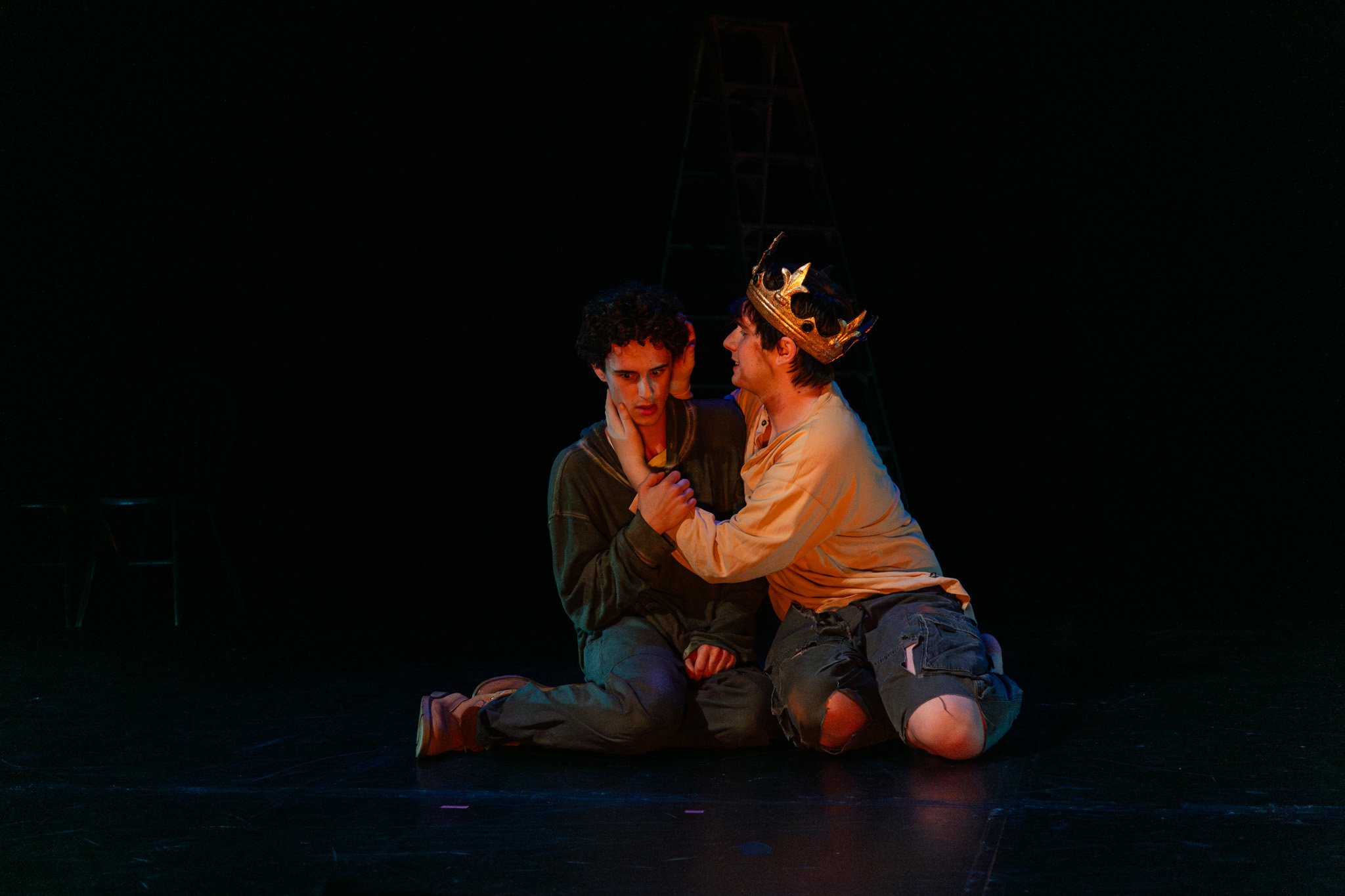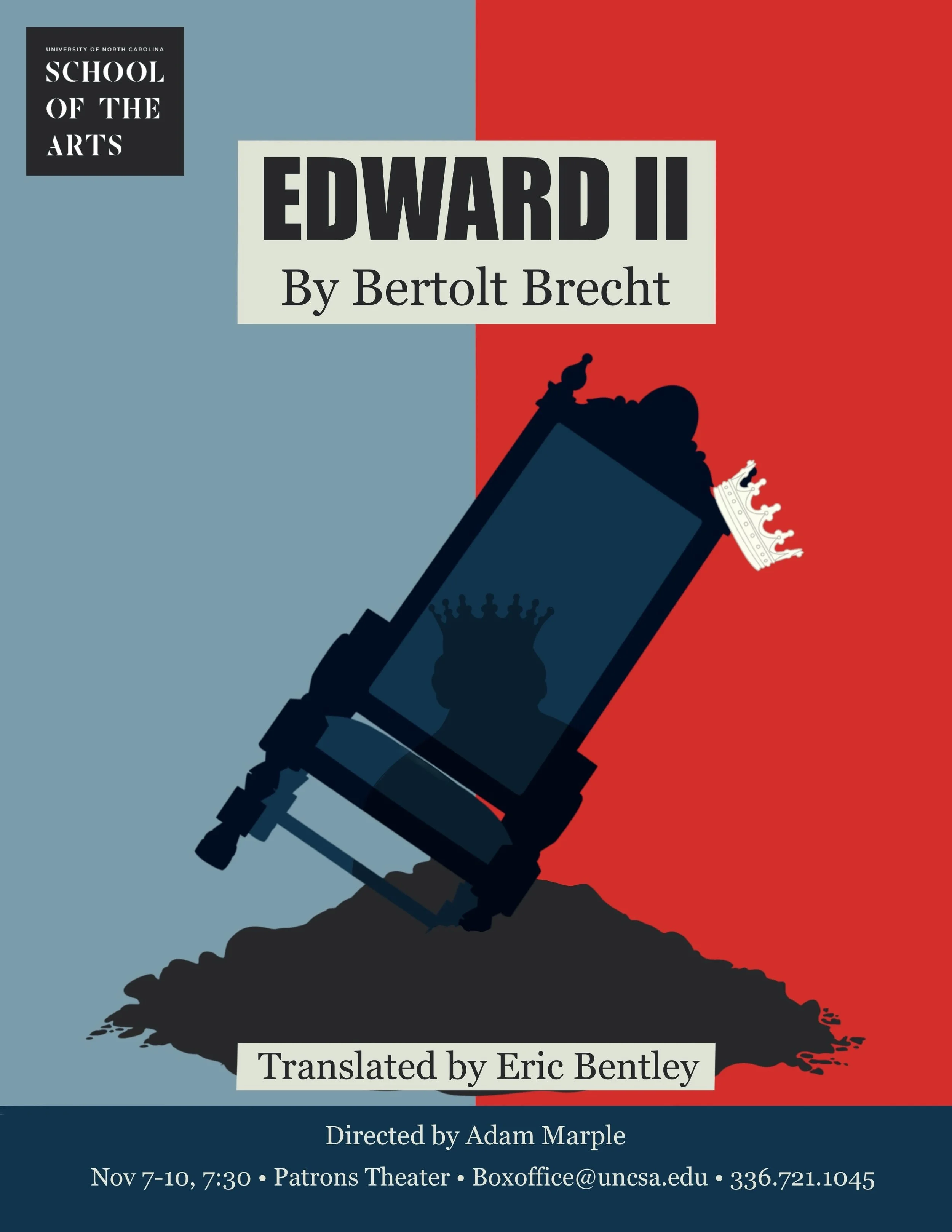Bertolt Brecht’s EDWARD II
The Patrons Theatre, The University of North Carolina School of the Arts (UNCSA), November 7-10 2024
As we present Edward II in 2024, the story of a leader’s descent and a kingdom’s fragmentation feels strikingly, even uncomfortably, relevant. This is not simply the tale of a flawed king who struggles against the expectations of his court—it is a study of power and authority, how personal ambitions ripple out to shake the foundation of a nation, and how those closest to power may manipulate it for their own ends.
Today, as we face unprecedented political uncertainty, escalating cultural divisions, and increasing questions about the integrity of leadership, Brecht’s play becomes a mirror, reflecting the fractures and fragilities within our own democratic institutions.
Edward’s downfall in Edward II is a product of both his own choices and the relentless machinations of those who surround him. His personal desires clash with the interests of the powerful nobles and churchmen who see his weaknesses as opportunities for their own gain.
This is a story that asks what happens when the figure at the top, meant to embody national unity, becomes a focal point of division instead. Edward’s fixation on his own desires alienates him from the responsibilities of kingship. The kingdom around Edward descends into chaos as his supporters and detractors clash in their attempts to either defend or dethrone him. Similarly, our own political landscape in 2024 is one in which allegiances and rivalries threaten to destabilize the very structures of governance that are meant to protect and represent the people.
Edward’s tragedy is that he believes in the invincibility of his position until it is too late, just as we today might question the security of our own democratic norms andthe resilience of our institutions. We invite you to consider the role of each character, from Gaveston to Mortimer, as symbolic of the various pressures—social, economic, ideological—that influence and, ultimately, decide the fate of leadership.
In Edward II, we see how a kingdom splinters when those in power act in their own interests while justifying it as “for the greater good.” As we now know the outcome of the most contentious election of our lifetimes, we are reminded that the struggle for power, the tug-of-war between personal ambition and public duty, and the vulnerability of institutions are not relics of the past. They are issues of our present. We invite you to watch with a critical eye and to ask yourself: What does true leadership demand, and what happens when personal and public interests collide?

















